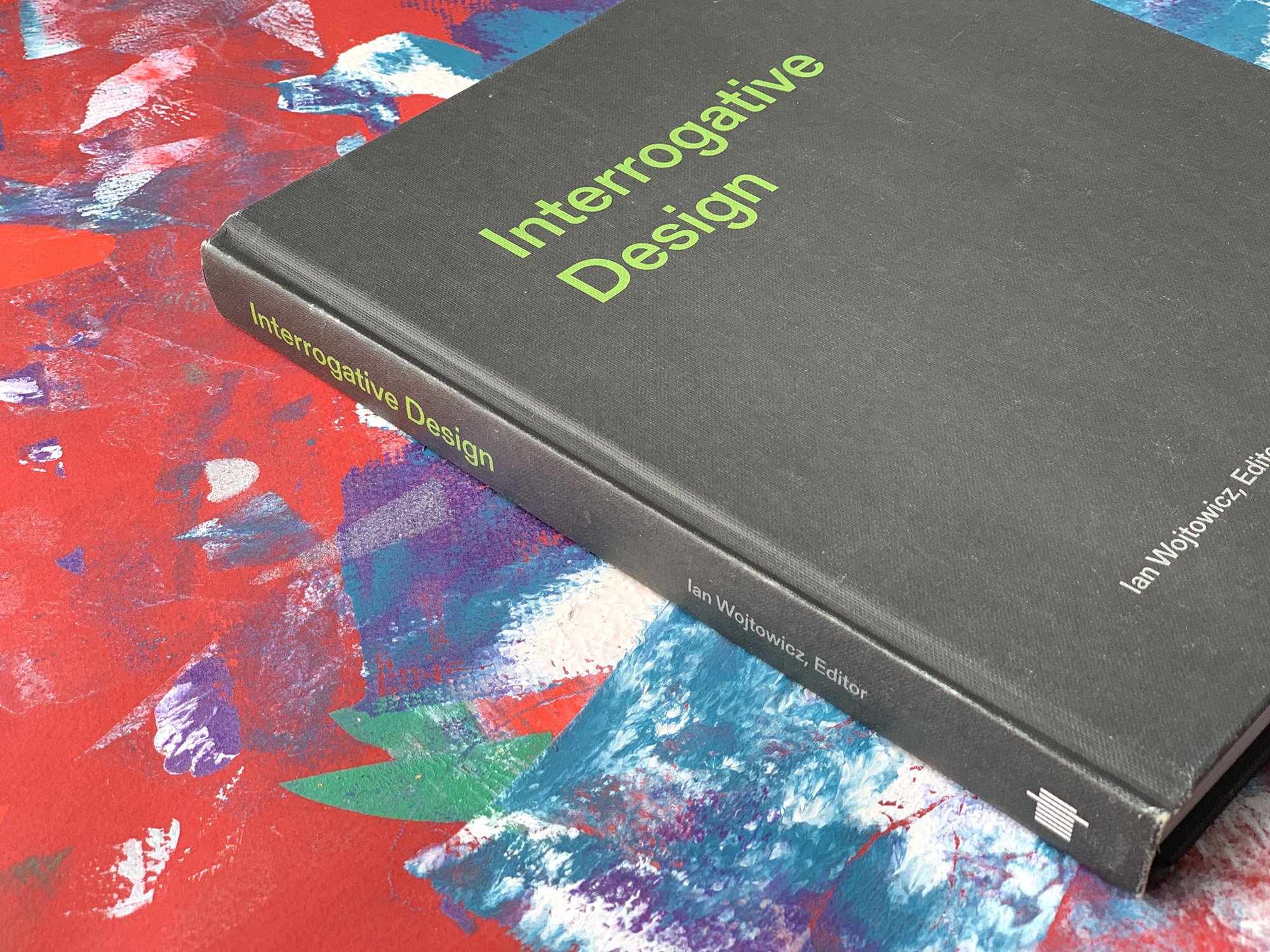
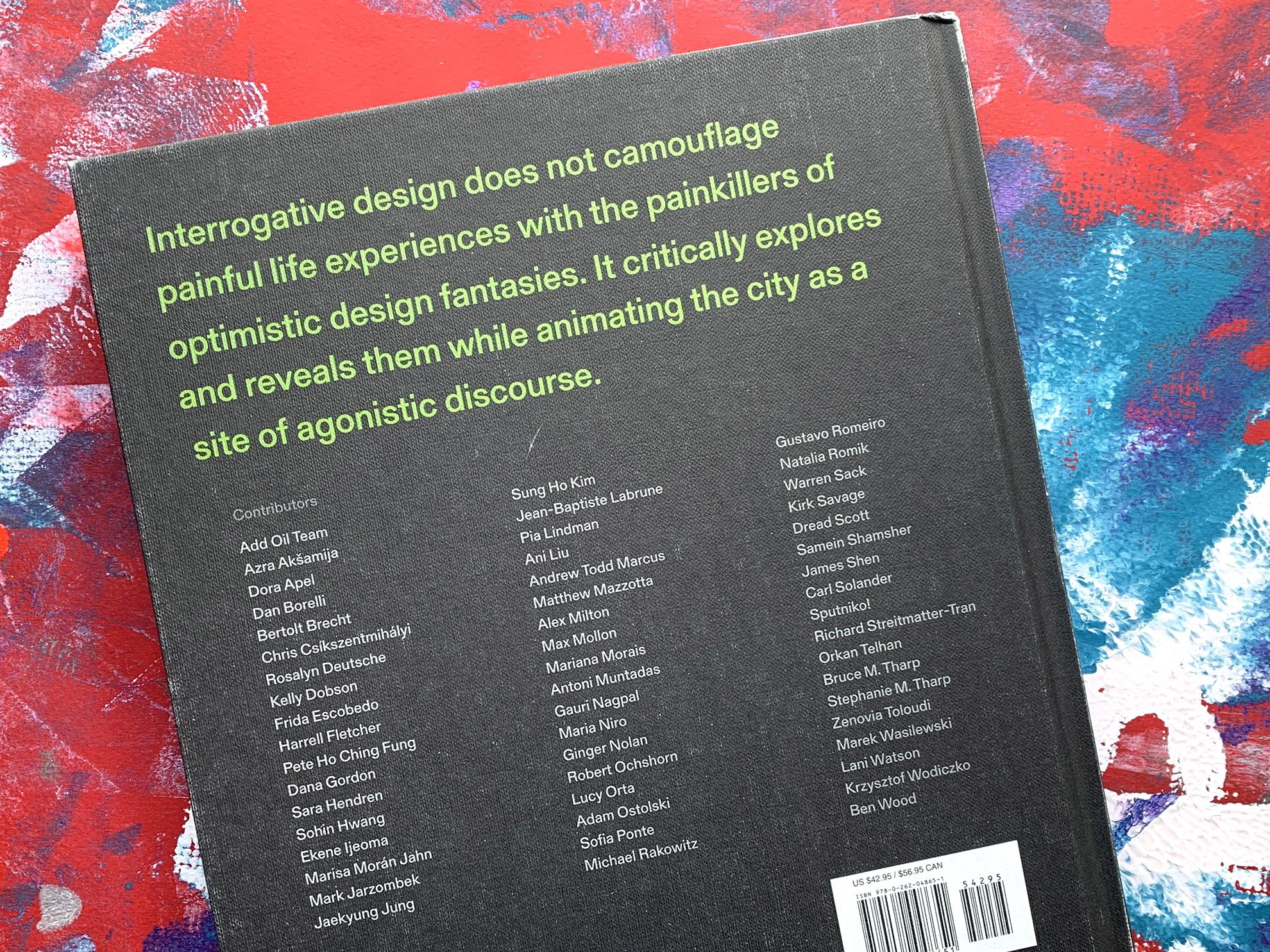
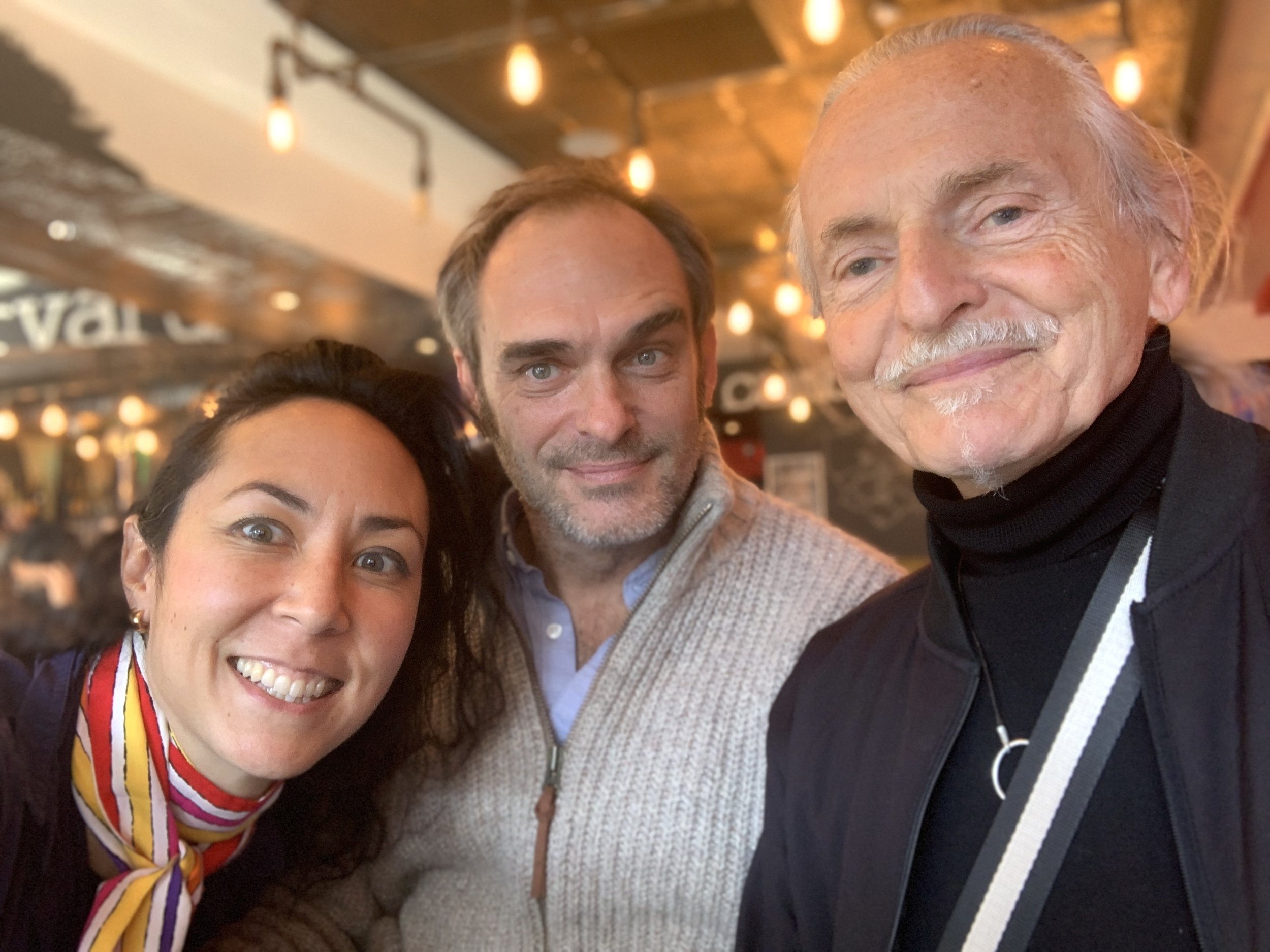
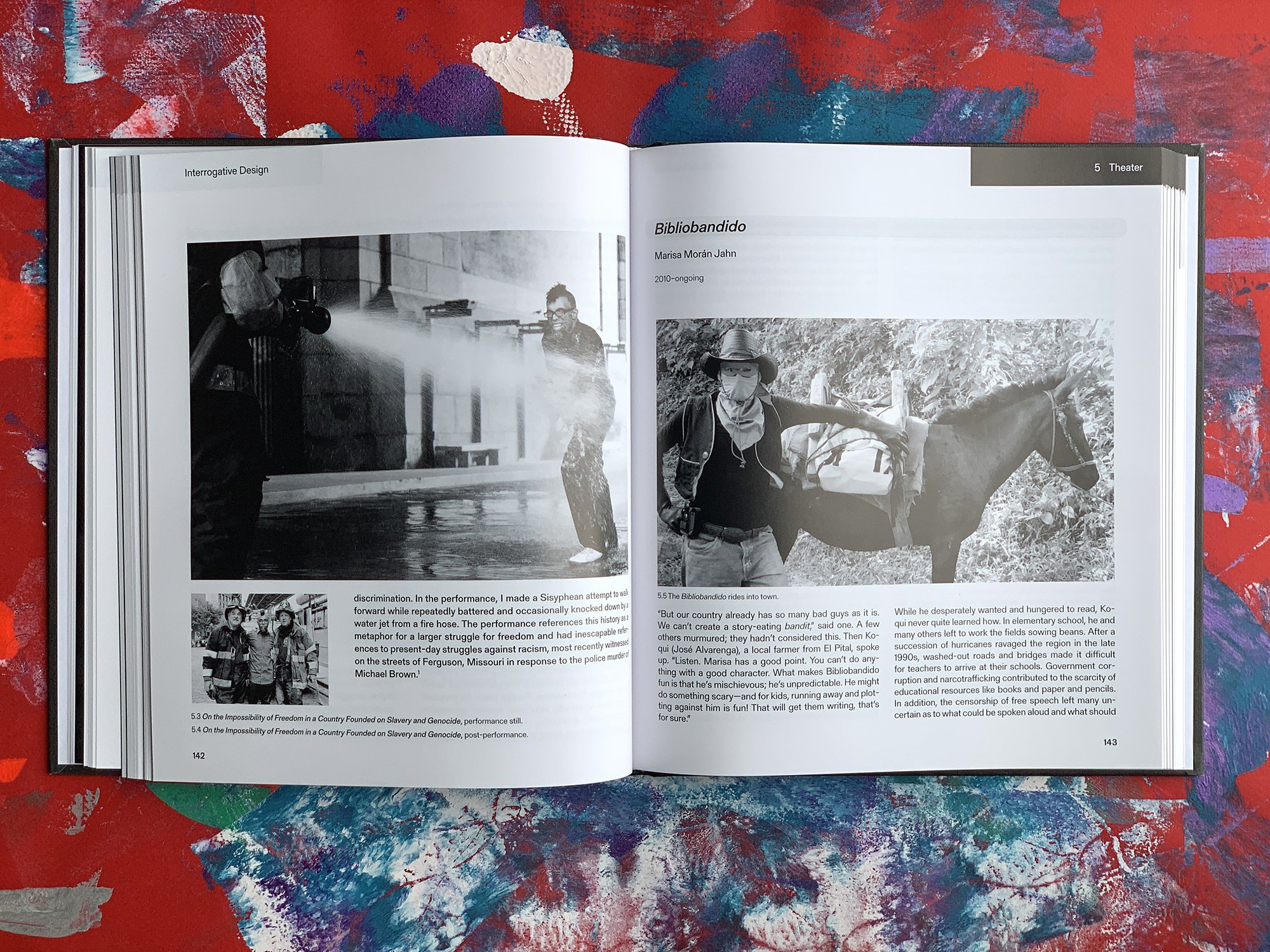
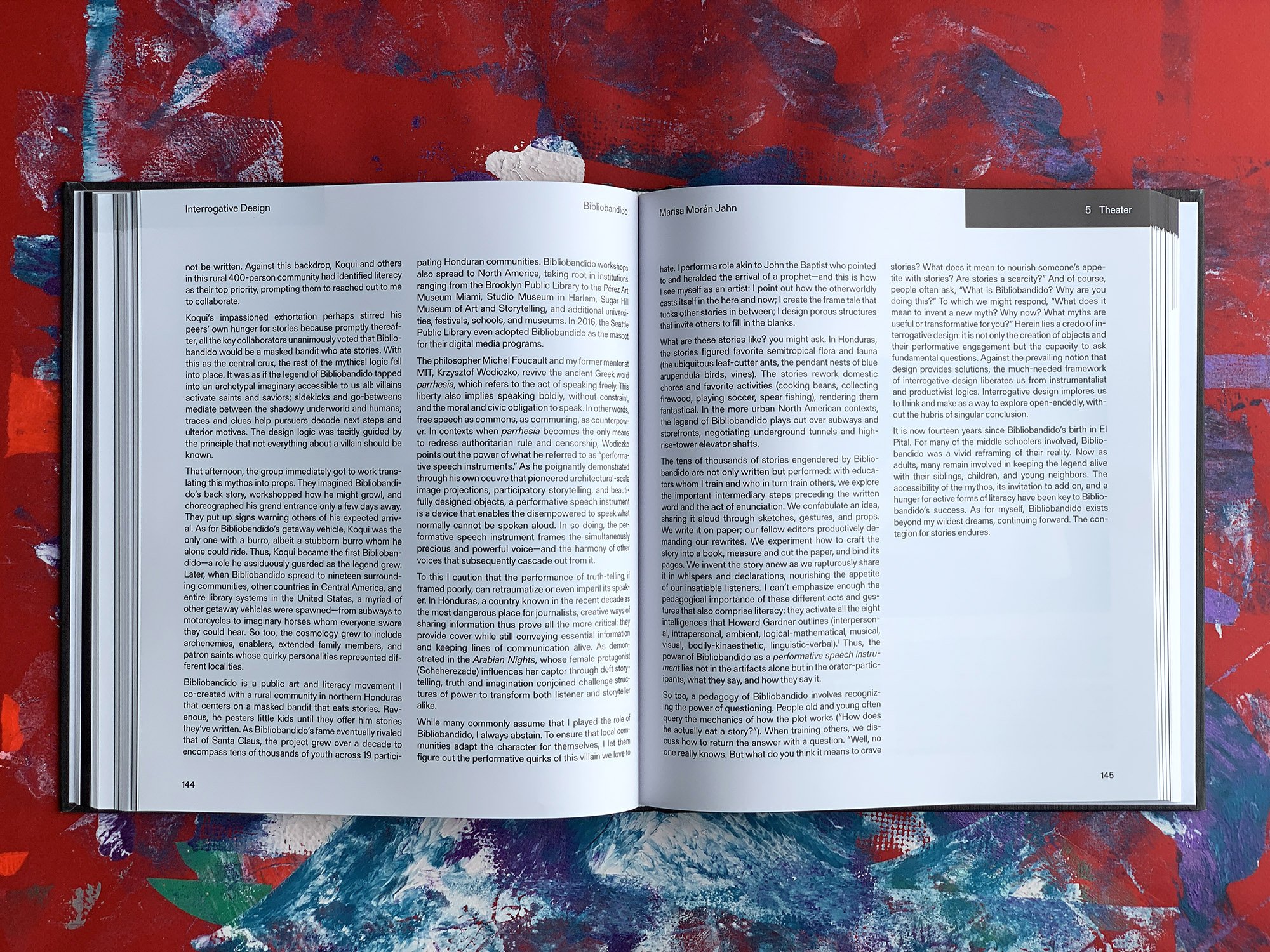
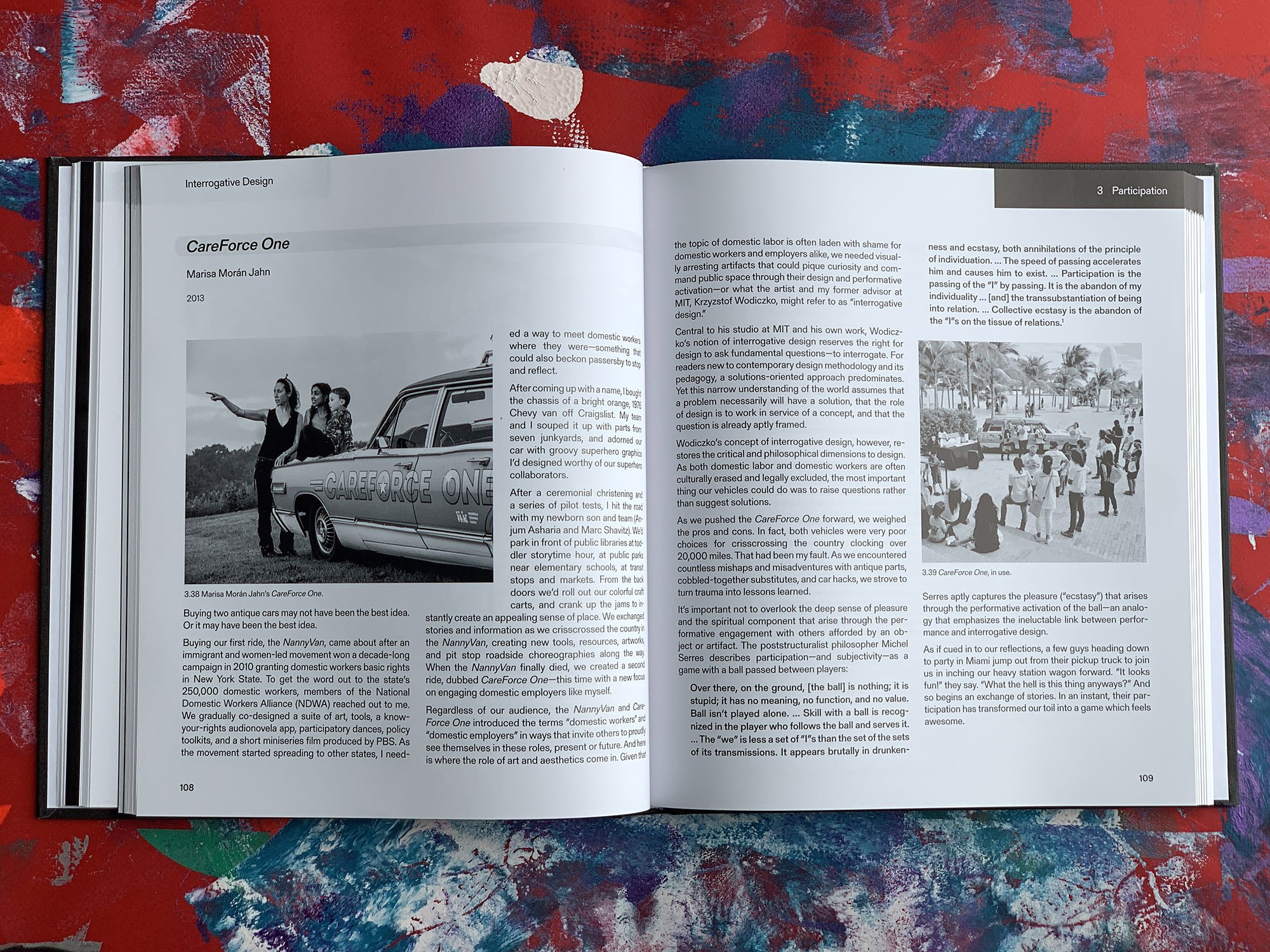
“Interrogative Design” (MIT Press, 2024) is a timely collection published that shows how design can animate public space and catalyze democratic processes through vital discussion and public engagement. While “design thinking” emphasizes the production of solutions, by contrast, “interrogative design” — a term coined by former MIT and Harvard professor Krzysztof Wodiczko — focuses on activating the public sphere and enriching public discourse through the production of questions. A notable contribution to the fields of critical design and media art, this book traces the development of interrogative design to Wodiczko (longtime professor at MIT and Harvard), his 1990s public art projects, and his intellectual and pedagogical legacy.
Edited by Ian Wojtowicz. Contributors include: Rosalyn Deutsche, Antoni Muntadas, Dora Apel, Dan Borelli, Harrell Fletcher, Pete Ho Ching Fung, Sara Hendren, Garnet Hertz, Sohin Hwang, Ekene Ijeoma, Marisa Morán Jahn, Mark Jarzombek, Jaekyung Jung, Sung Ho Kim, Jean-Baptiste Labrune, Pia Lindman, Ani Liu, Matthew Mazzotta, Alex Milton, Maria Niro, Ginger Nolan, Sofia Ponte, Gustavo Romeiro, Warren Sack, Nitin Sawhney, Sanjit Sethi, Samein Shamsher, James Shen, Orkan Telhan, Zenovia Toloudi, Marek Wasilewski, Sampson Wong, Ben Wood, and others.
Visible: Art As Policies for Care – Socially Engaged Art (2010—ongoing) is a seminal publication that explores the transformative potential of socially engaged art practices. This book focuses on the relationship between art and the public sphere. It presents a new scene of artistic practices that interpret the dematerialization of art into transformative cultural and care policies, addressing the climatic, social, and political urgencies of our times.
Edited by Martina Angelotti, Matteo Lucchetti, Judith Wielander. Epilogue by Emanuele Coccia, 2024
Essay by Marisa Morán Jahn about CareForce; Essay by Ai-jen Poo on Marisa Morán Jahn’s CareForce
Contributors: Maria Theresa Alves, Art Labor, Kader Attia, Richard Bell, Black Quantum Futurism, Brave New Alps, Tania Bruguera, Giuseppe Campuzano, Luke Ching, Chto Delat, Radha D’Souza R and Jonas Staal, Ntone Edjabe, Forensic Architecture, Futurefarmers, Maria Galindo, Nan Goldin, Adelita Husni Bey, Emily Jacir, Karrabing Film Collective, Ibrahim Mahama, Zacharias Kunuk, Wu Mali, Renzo Martens, Marisa Morán Jahn, Zanele Muholi, Jesus Bubu Negrón, Otobong Nkanga, Ahmet Öğüt, Jasmeen Patheja, Narawan Kyo Pathomvat, Sahar Qawasmi and Nida Sinnokrot, Tabita Rezaire, Robida Collective, Rojava Film Commune, ruangrupa, Jon Rubin and Dawn Weleski, Dread Scott, Superflex, Nadya Tolokonnikova, Trampoline House, Nomeda and Gediminas Urbonas, Éric Van Hove, and others
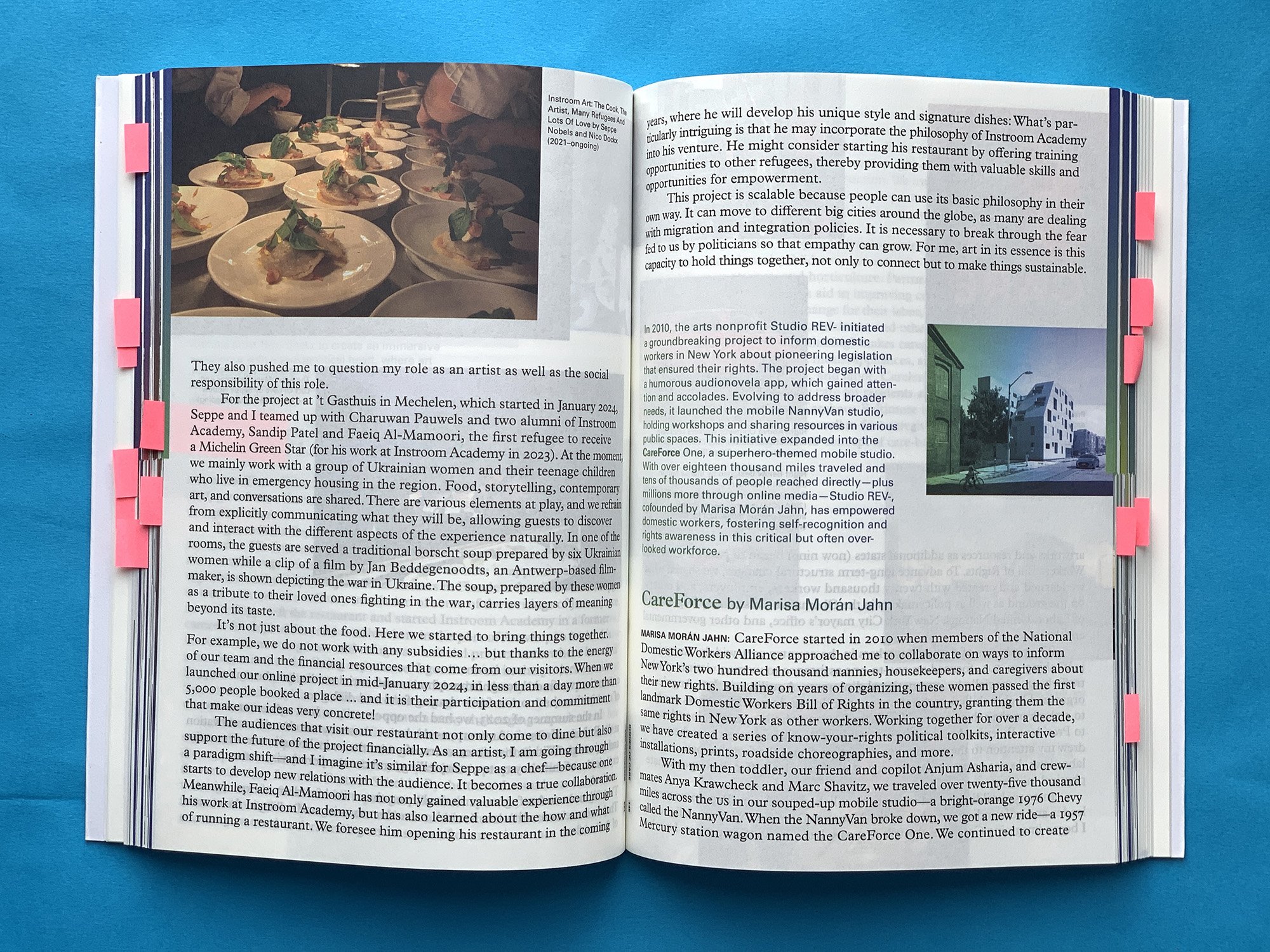
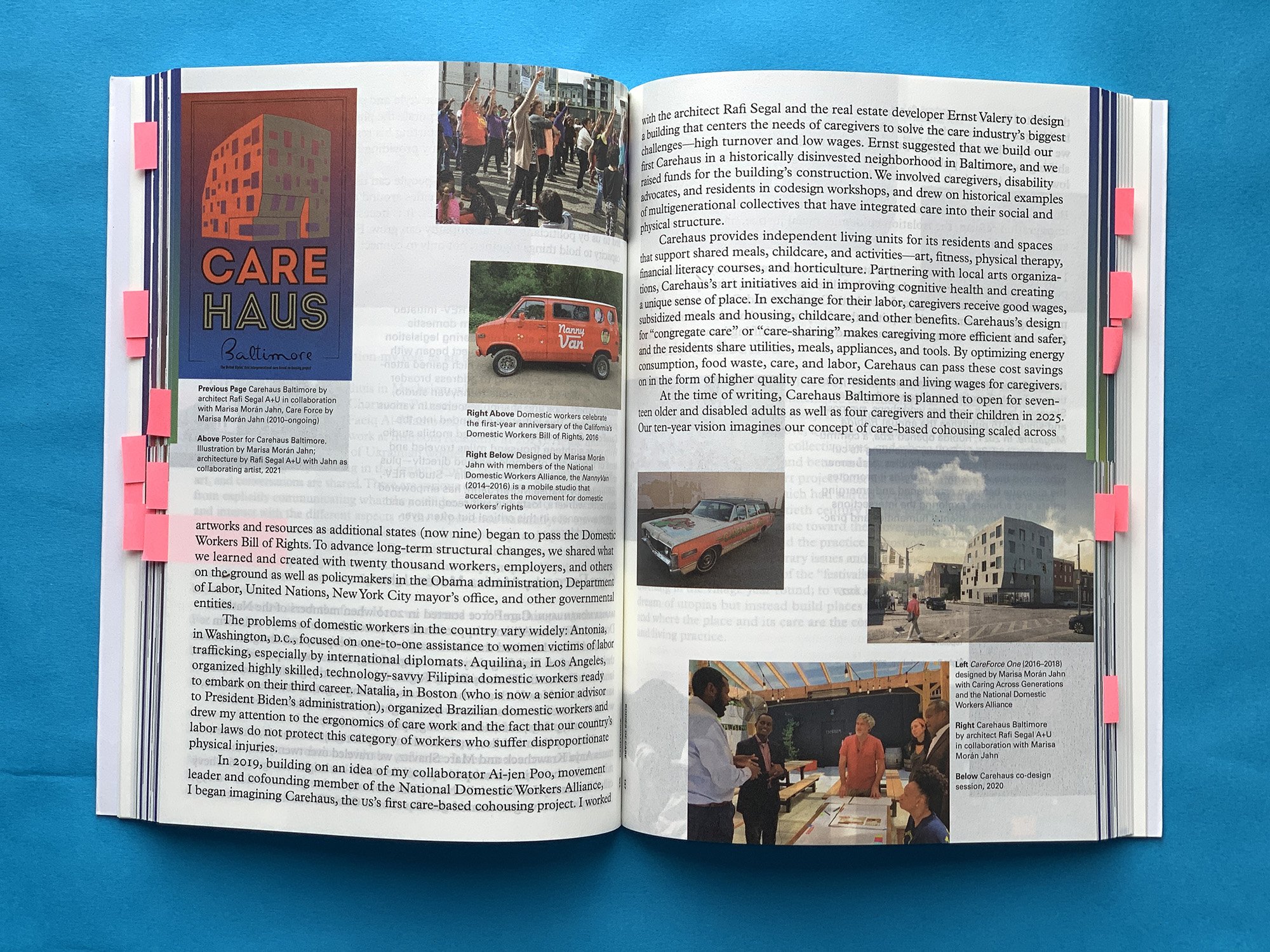
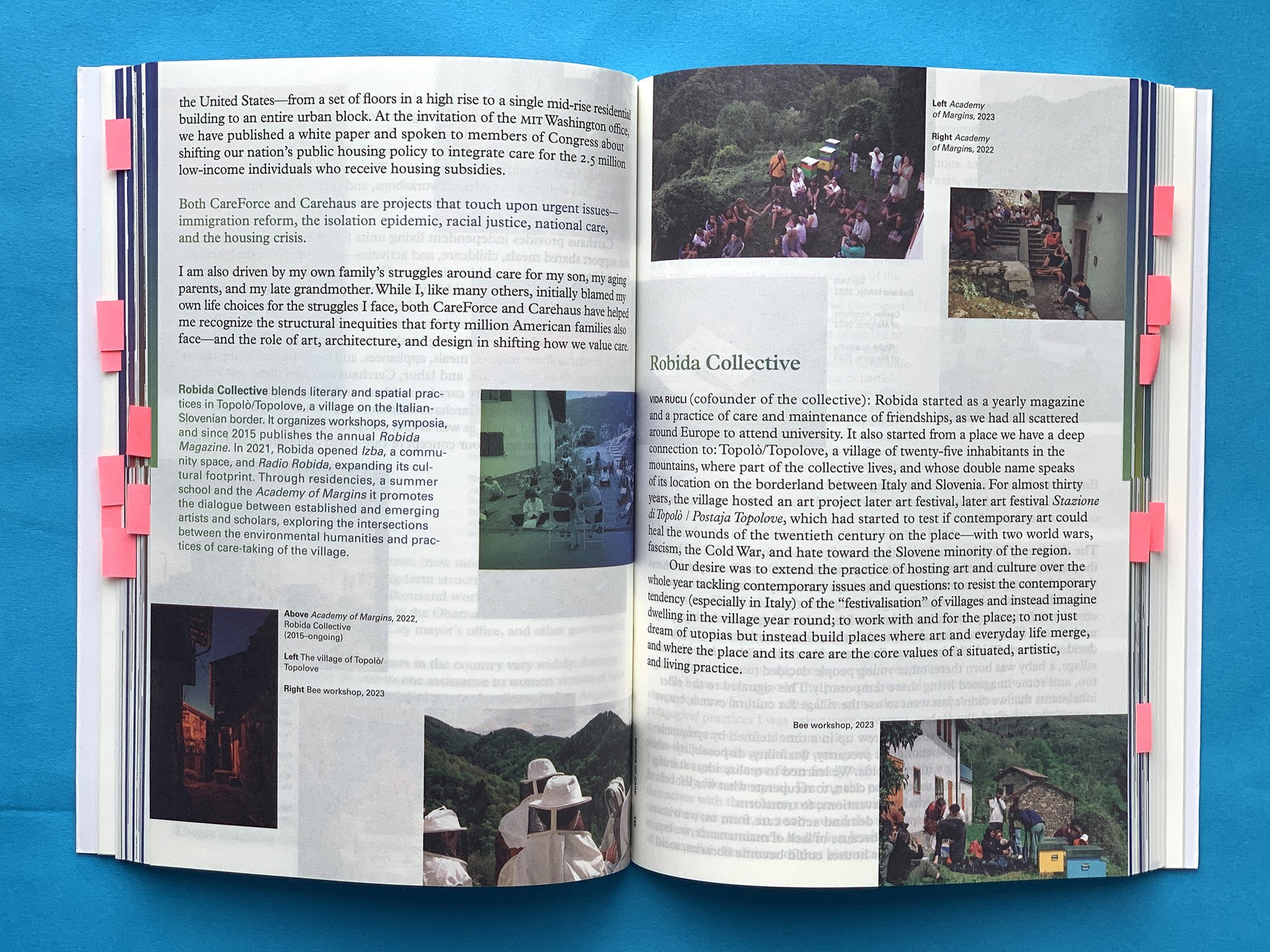
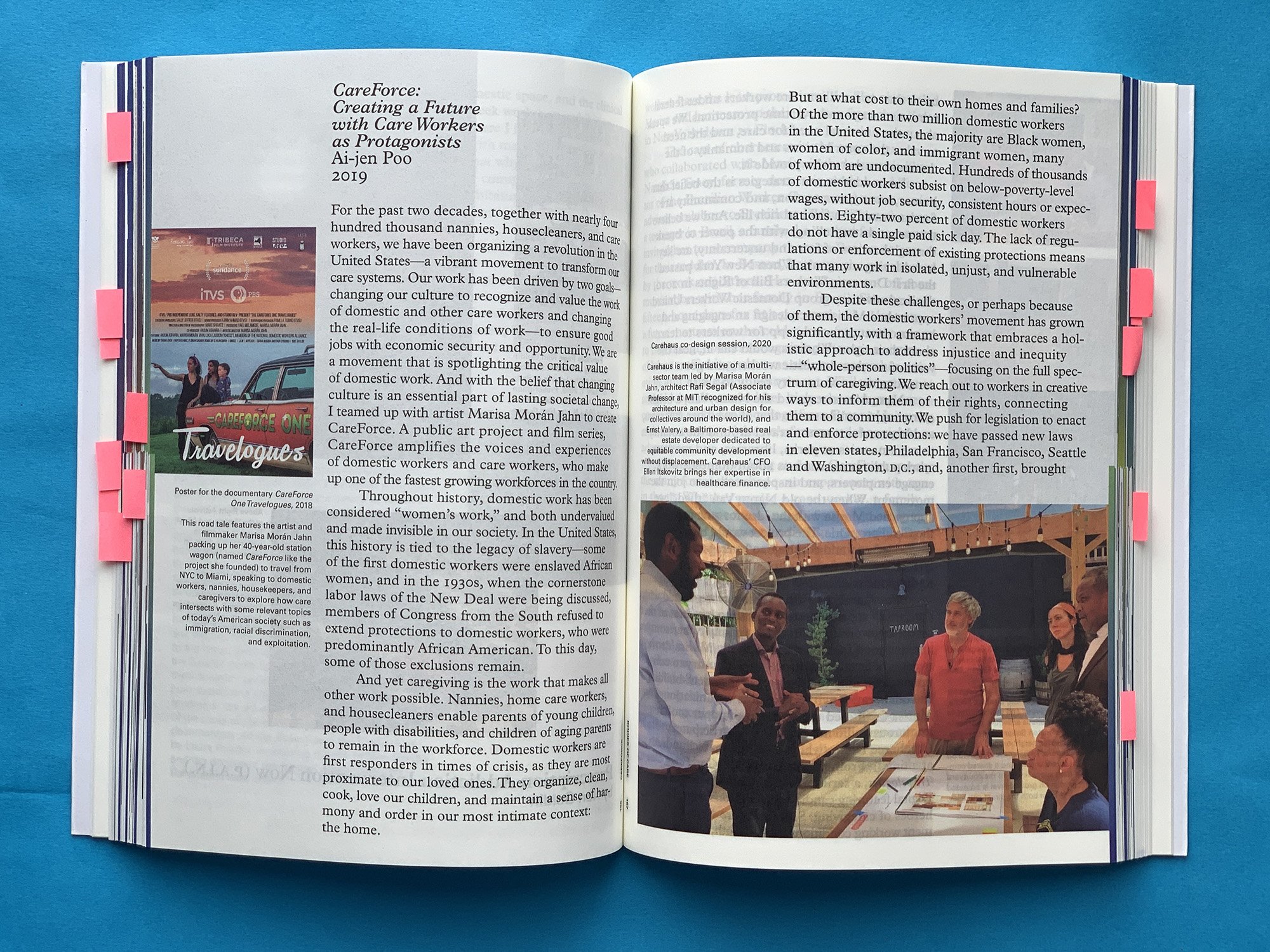








What does it mean to “make home”? Published by MIT Press and Cooper Hewitt/Smithsonian in conjunction with the Design Triennial, Making Home explores the contradictions — dis/comfort, dis/connection, and more. As a second-gen immigrant with family dis/placed around the world and a lifelong sense of terrestrial disjunction, I found a lot of comfort in the diverse writing offered by the thinkers, artists, and designers. Peek into “Memory” to find my essay-conversation w/ architect Rafi Segal, domestic worker advocate Guillermina Castellanos, developer Ernst Valery and others about the making of Carehaus, the U.S.’s first intergenerational care-based, co-housing project that builds on my decade-long collaboration with the National Domestic Workers Alliance.
Edited by Alexandra Cunningham Cameron, Christina L. De León and Michelle Joan Wilkinson, 2025.
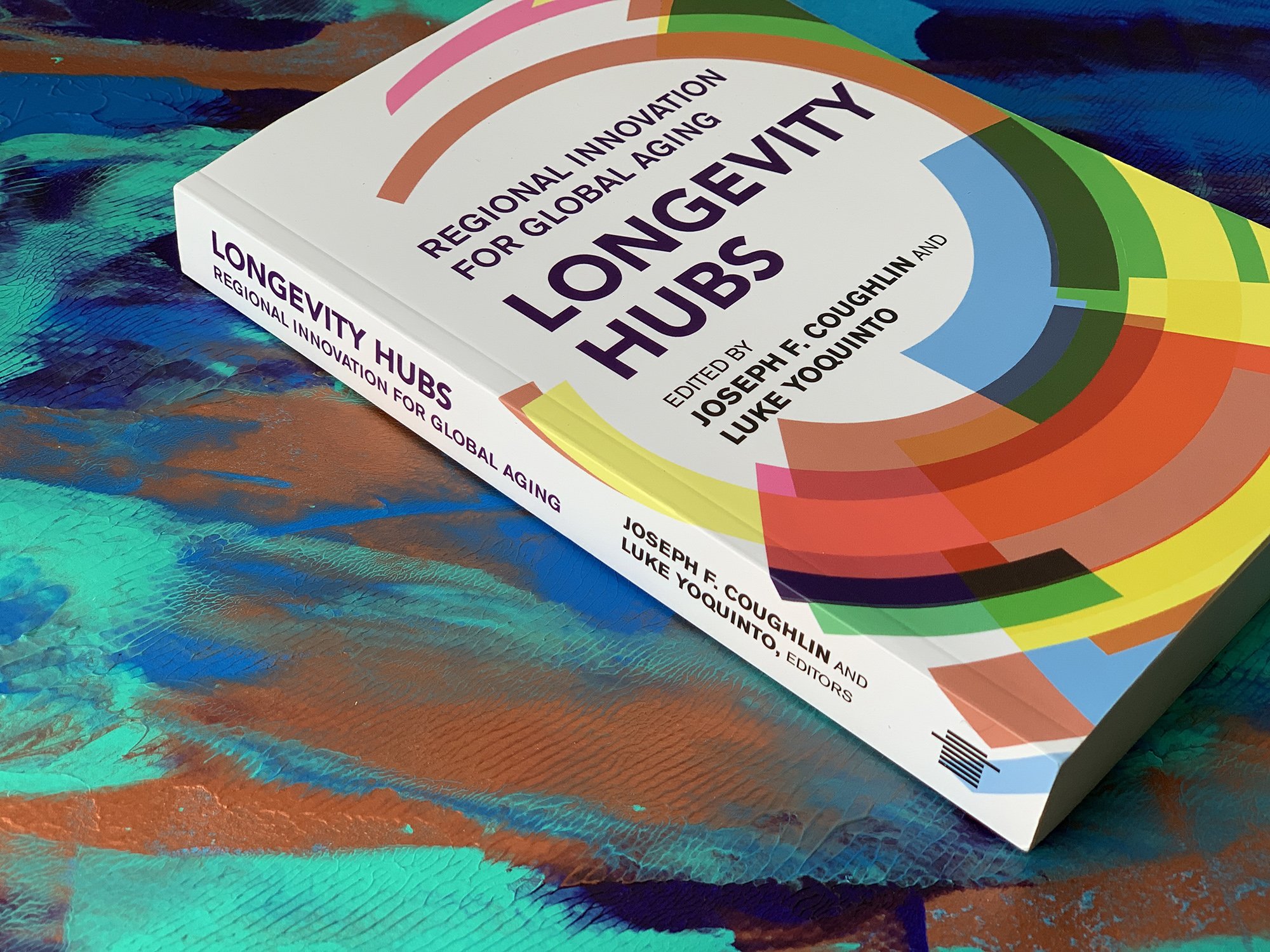
”Longevity Hubs” (MIT Press, 2024) explores how innovation hotspots for the world's aging population may prove to be of vital economic and strategic importance in the years ahead.
Populations around the world are aging, and older adults' economic influence—already considerable—stands to grow markedly in the decades ahead. Finding ways to make these lives better is a win-win-win: for older consumers; for aging economies; and for companies and the regions where they reside.
This much-needed volume edited by Joseph Coughlin and Luke Yoquinto, Longevity Hubs, brings together contributors—entrepreneurs, researchers, designers, public servants, and others—who are addressing the multifaceted concerns of aging societies. Together, they explore the possibility that specific regions will soon distinguish themselves as longevity hubs: a home to disproportionate economic and innovative activity for older populations.
Contribution by Marisa Morán Jahn and Rafi Segal


